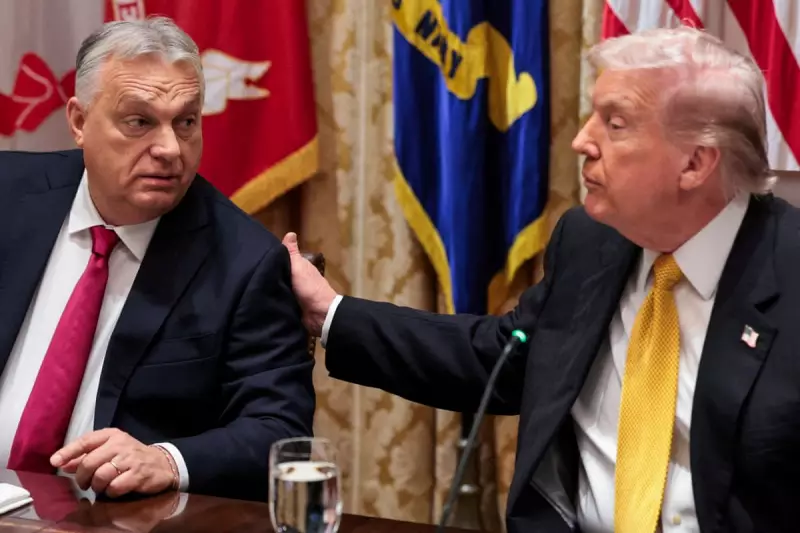
The political world is bracing for a controversial diplomatic encounter as former US President Donald Trump prepares to meet Hungarian Prime Minister Viktor Orbán. This planned visit, occurring against the backdrop of Trump's potential political comeback, has raised significant concerns among western democracies about the erosion of democratic norms and values.
The Budapest Meeting: Timing and Implications
The scheduled meeting between Trump and Orbán carries substantial symbolic weight, particularly given Hungary's increasingly authoritarian trajectory under Orbán's leadership. The Hungarian leader has systematically undermined judicial independence, restricted press freedom, and consolidated power in ways that have drawn repeated criticism from the European Union and human rights organisations.
What makes this encounter particularly noteworthy is its timing. With Trump positioning himself as the likely Republican presidential candidate for the next election, this meeting signals a potential foreign policy approach that would prioritise relationships with nationalist leaders over traditional western alliances. The optics of an American political figure embracing a leader who has openly expressed admiration for "illiberal democracy" cannot be overlooked.
Democratic Values Under Pressure
The relationship between Trump and Orbán didn't develop overnight. During his presidency, Trump notably praised the Hungarian leader, while Orbán has consistently expressed support for Trump's political movement. This mutual admiration reflects a broader pattern of alignment between populist nationalist leaders who often share scepticism toward multilateral institutions and liberal democratic principles.
European leaders are watching this development with growing apprehension. The potential normalisation of Hungary's democratic backsliding through high-profile international endorsements sets a dangerous precedent. When influential figures like Trump lend legitimacy to governments that have systematically weakened democratic institutions, it undermines the collective standing of democracies worldwide.
Hungary's transformation under Orbán serves as a case study in how democratic erosion can occur through legalistic means rather than overt coups. By rewriting electoral laws, tightening control over media, and appointing loyalists to key institutions, the Orbán government has created what many experts describe as a "hybrid regime" – maintaining the facade of democracy while hollowing out its substance.
The Stakes for International Relations
The significance of this meeting extends far beyond bilateral relations between the United States and Hungary. It represents a potential shift in how democratic powers engage with governments that have demonstrated questionable commitment to democratic norms. The traditional western approach of conditioning relationships on democratic standards appears to be giving way to a more transactional model based on immediate political alignment.
This development comes at a particularly fragile moment for global democracy. According to numerous international indices, democratic governance has been in decline worldwide for over a decade. High-profile endorsements of leaders who have contributed to this trend could accelerate the deterioration, encouraging other governments to follow similar paths without fearing diplomatic isolation.
The response from other western powers will be telling. Will they explicitly condemn this political courtship, or will business-as-usual diplomacy prevail? The answer may determine whether democratic backsliding becomes increasingly normalised in international relations or remains a source of diplomatic friction.
Looking Toward Future Elections
Ultimately, the most significant check on this trend may come from voters themselves. As the editorial in The Guardian suggests, the importance of upcoming elections in defending democratic values cannot be overstated. Electoral outcomes in the United States and other democracies will likely determine whether relationships with governments like Orbán's become mainstream or remain contentious exceptions.
The connection between domestic political choices and international democratic solidarity has never been clearer. Citizens in democracies worldwide face a choice between leaders who prioritise democratic principles even when inconvenient and those who view them as negotiable in pursuit of other objectives. The consequences of these choices will reverberate far beyond national borders.
As political observers monitor the Trump-Orbán meeting, the broader question remains: can democratic institutions withstand the pressure from within and without? The answer may depend on whether democratic allies can maintain a united front in defence of shared values, even when facing influential figures who question their importance.





